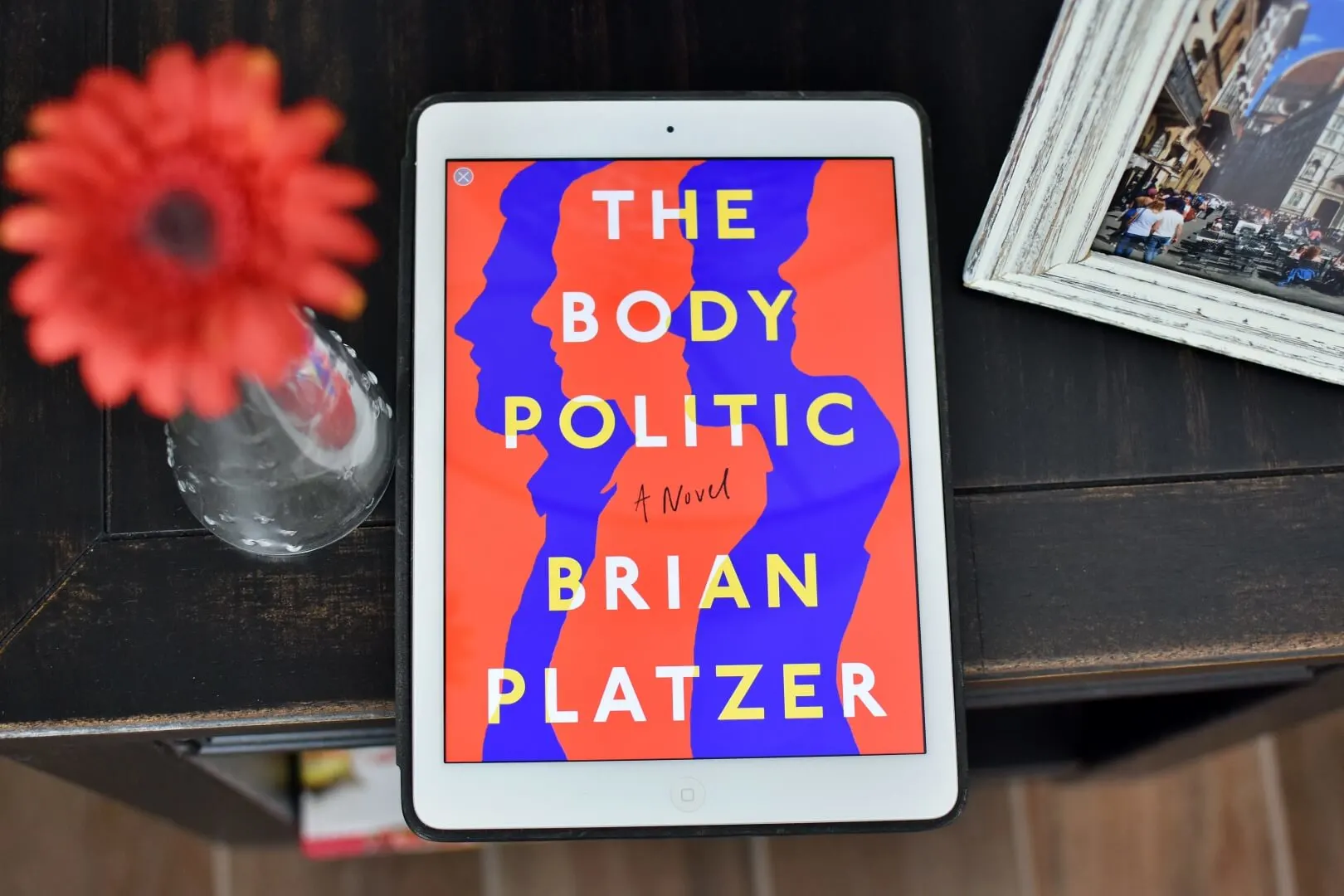Editorial note: I received a copy of The Body Politic in exchange for a review.
The Body Politic by Brian Platzer is an impactful literary fiction novel that is so relevant to our current times.
Well-crafted literary fiction is in a class all its own. These are the stories that truly do resonate and cause you to reflect. The characters tend to be authentic, messy and make confusing decisions—just like we all do in real life. The writing is typically so strong and vivid. This is definitely the case with The Body Politic—a novel that I’ll be thinking about for some time.
First a little context about the story. The author Brian Platzer suffers from chronic dizziness, which he detailed in this article for the New York Times. He wrote:
In my new novel, which comes out in March, the protagonist suffers from the same symptoms that I do: the brain-fog, dizziness, vision loss and discombobulation along with the existential anxiety that these symptoms will last forever. Writing the novel allowed me to process my own experience and better think through the experiences of my loved ones who have supported me throughout the ordeal. The hope I now feel about my future, even one that includes dizziness, is captured in a scene where the main character’s wife asks her husband if he feels better.
“Not really,” he says. “But I’ve been doing more. I’ve been better at imagining the life I want to live.”
The synopsis:
The story is set in New York City primarily in the wake of the 2016 election. There are four characters —Tess, Tazio, David, and Angelica—their bond has endured—but almost everything else has changed throughout the years.
As freshmen at Cooper Union, Tess and Tazio were the ambitious, talented future of the art world—but by thirty-six, Tess is married to David, the mother of two young boys, and working as an understudy on Broadway. Kind and steady, David is everything Tess lacked in her own childhood—but a recent freak accident has left him with befuddling symptoms, and she’s still adjusting to her new role as caretaker.
Meanwhile, Tazio—who once had a knack for earning the kind of attention that Cooper Union students long for—has left the art world for a career in creative branding and politics. But in December 2016, fresh off the astonishing loss of his candidate, Tazio is adrift, and not even his gorgeous and accomplished fiancée, Angelica, seems able to get through to him. With tensions rising on the national stage, the four friends are forced to face the reality of their shared histories, especially a long-ago betrayal that has shaped every aspect of their friendship.
Politics impact everything
If you couldn’t tell by the title, politics is very much addressed, which as a political junkie, I very much appreciated it. There was so much in what Brian wrote about how the country was feeling after the election that I kept nodding in agreement toward. I found myself chuckling at his descriptions of blasting MSNBC seemingly nonstop trying to find some type of answer or meaning in what the hell is happening to the country.
And while people try to say there’s a time and place for politics, it truly does impact everything. I feel this novel really shows how you can’t just turn a blind eye to what’s happening the world. For instance, on the subject of healthcare, David’s accident impairs him where he’s not able to work and it’s up to Tess to find some type of work. It’s little details like that this that just felt so realistic.
There’s also a storyline where a character confronts a man who sexually assaulted her—which she is partly influenced by her frustration on who is in the White House. It’s a very impactful section.
Complicated dynamics
Tess, in particular, is quite damaged. And while she’s trying to help her injured husband, she sometimes feels as if there’s no one to help her, which is something that has been somewhat true since she was a teenager. I was quite engaged with Tess’s storyline.
The characters are in their mid-to-late 30s, which is not really a time period that’s covered as much. Especially as it’s expected that people should have everything figured out by then. But as these characters display, that idea might just be impossible and people are taking it day-by-day.
A central theme of the story is forgiveness and how it doesn’t always operate in absolutes. But it helps one go on the path of healing and whether it’s emotionally or physically, people just want to fell well. And anyone can relate to that desire.
Final review thoughts: a remarkable and quiet story about people trying to make it all work in confusing and traumatizing times. This one is full of many layers so be sure to take your time with it.
Check out my book club questions here.






